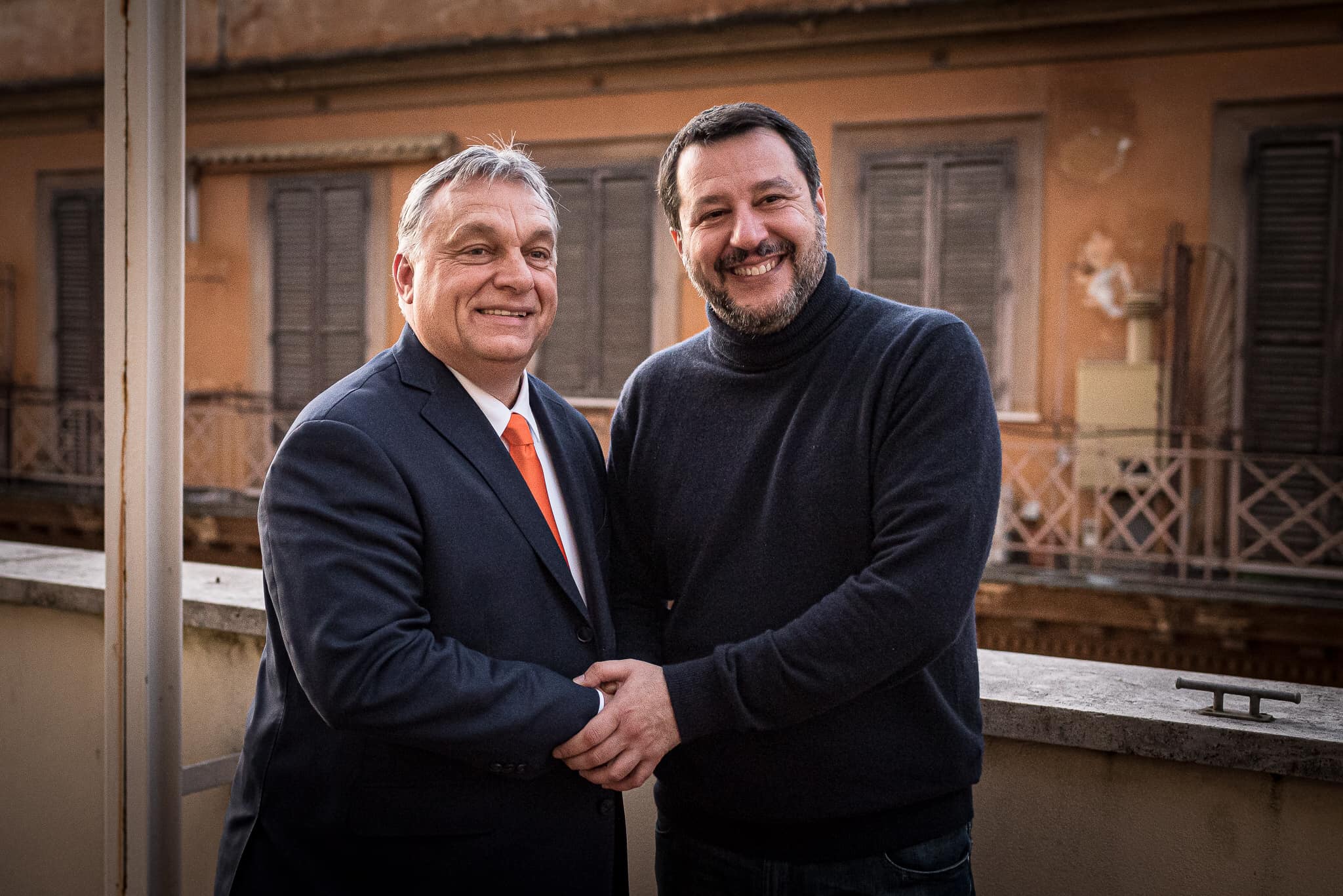Matteo Salvini met with Viktor Orbán and Mateusz Morawiecki to imagine a shared future for European nationalists. It’s a matter of numbers, strategic relevance and reshaping Euroscepticism
On Thursday Italy’s nationalist-in-chief Matteo Salvini flew to Budapest to meet with the Hungarian and Polish prime ministers, Viktor Orbán and Mateusz Morawiecki. “It’s three of us today, but we want to become the first European group,” said the Italian leader as he referred to the object of the talks: the creation of a new European Parliament hub for conservatives.
The three launched a “European renaissance” project intended to bring together like-minded nationalist forces, who share a desire to “defend borders and lives,” fight “[those who] question traditional values like the family” and strive for an European Union that “does few things together, but well, and an Europe that doesn’t use the weapon of blackmail,” in Mr Salvini’s own words.
The all have good reasons to join forces. Mr Orbán’s party Fidesz recently exited the European People’s Party (EPP), the Italian family of moderate conservatives counting Angela Merkel’s CDU among its members. The Hungarians got out right before their expulsion – which had been lingering in the air for years due to Mr Orbán’s illiberal tendencies – could be formalised, and the party is currently working on a new alliance of nationalists.
Mr Salvini could use a boost in his European standing. His party, the League, is the senior partner of the “untouchable” Identity and Democracy (ID) party, which includes Marine Le Pen’s National Rally and the hard-right Alternative for Germany (AfD). Not the best formation to pull around his relatively significant weight, as many moderate parties nurture a distaste for ID’s most extreme members and as the party holds 74 of the 705 European Council seats.
The Italian leader recently underwent something of a EU-turn, marked by what seems to be a shift towards moderation, but the rumours about the League leveraging this change to replace Fidesz in the EPP don’t seem to hold much value anymore.
Furthermore, Mr Morawiecki’s Law and Justice (PiS) is the driving force within the European Conservatives and Reformists Party (ECR), whose chairwoman recently became Giorgia Meloni, an ally and a direct competitor to Mr Salvini in Italy.
It’s all in the numbers: ID’s 74 seats plus ECR’s 62 would generate a 136-seats strong European party, which would be the third biggest in the European Parliament – a force to be reckoned with, wildly superior to the two original, relatively uninfluential parties. That progeny would in turn be a powerful base for the harder varieties of European nationalists.
In Mr Salvini’s case, it’s also about keeping friends close and competitors closer. Ms Meloni’s own party, Brothers of Italy, enjoyed a staggering polling growth from single digits in 2018 to roughly 18% nowadays, rising dangerously close to the League’s 23% (it touched 34% before the pandemic) by eating directly into its margins.
It’s no easy task – nationalists have been trying and failing to unite their parties in Europe due to their conflicting national interests. Mr Salvini and Mr Orbán share a symphaty for Russia’s Vladimir Putin, but the Poles do not.
However, ID and ECR share several traits. “Many Europeans reject immigration and multiculturalism, prefer a traditional family model and want to protect their national identity and consider national authority superior to European directives,” said Mr Orbán on state television, on Wednesday. Mr Morawiecki and Mr Salvini have struck similar tones in the past.
All three leaders are no strangers to Euroscepticism. Marco Zanni, the League MEP that chairs ID, wrote on Formiche.net the day before the summit to describe its purpose: imagining an alternative to the current version of Europe, which “ceased working a long time ago,” is “promoted by the current majority in the European institutions,” “far from the real needs of its people,” and “too far to the left.”
“The encounter,” continued Mr Zanni, “is nothing else but a new step in this direction, the progression of a dialogue that the League never interrupted, with representatives from other European political forces with which we share common values.”
The promise of a Brexit-like withdrawal doesn’t hold the same power as it did before the pandemic (and the European recovery plan) struck. Thus, these conservatives (including Ms Meloni and Ms Le Pen) are now embracing the idea of fighting from within the EU. If they do manage to close ranks, they could very well have a substantial say on the future direction of the bloc.








